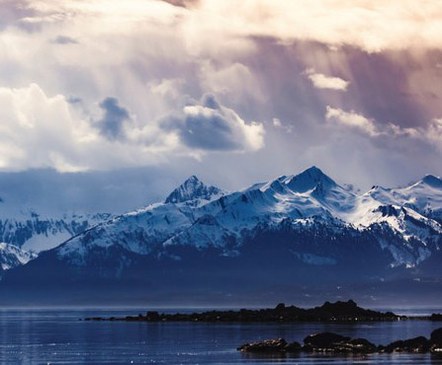Equity & Belonging Resources
Mountaineers Policies & Expectations
We have established a transparent process for what to do in the event of problem behavior. Below are links to directly access forms to submit a problem behavior complaint. To learn more about all of the resources available, visit our #SafeOutside blog.
- Member Code of Ethics
- Prohibited Behavior Policy
- Prohibited Behavior Investigation Policy
- #SafeOutside Poster
- Building a Safe and Respectful Culture
Table of Contents
Updates
- Equity & Belonging Update: 2025 Trail Markers
- Equity & Inclusion: 2024 Trail Markers & the Path Ahead
- Equity & Inclusion: April 2022 Town Hall Recap
- E&I Town Hall: Learn About Our Strategy
- Climbers of Color: A Partnership to Support Leaders of Color
- Speaking Up Regarding the Incident in Forks
- Equity & Inclusion Update: 2019 Year In Review
- Updates to My Profile Page: Pronouns & Optional Demographic Information
- Equity & Inclusion Working Sessions: Key Findings
- 2019: Meet Our Steering Committee
- Committee Charter, Working Group Sessions, & Resources
Start Here
- What are pronouns? (2 min read)
- Trans 101: A Pocket Guide to Language for Inclusion (4 min downloadable guide)
- "What Is Intersectionality" (2 min video)
- Pronouns Matter Resource Guide
- Washington State Employees’ LGBTQ+ Business Resource Group’s document on pronouns
- Add pronouns to your Mountaineers Profile (5 min read)
- Merriam Webster Dictionary names 'they' as 2019 word of the year (1 min read)
- Seeing White podcast, Episode 13 (48 mins) and Episode 14 (44 mins)
- The full season of Seeing White has also been condensed into a 1-hour episode.
- Anti-Racism Resources for White People (5 min read)
- 103 Things White People Can Do For Racial Justice (31 min read)
- Joint Statement on Climbing Route Names (2 min read)
- Fighting Racism in the Outdoors (2 min read)
- 3 Simple Steps to Get Started on Your Equity & Inclusion Journey (7 min read)
- Climbing can't be racist, right? (3 min read)
Justice, Equity, Diversity, and Inclusion
- The Problem with 'Hey Guys' (6 min read)
- Stop Using the Slang Word for Carabiner (4 min read)
- Life of Privilege Explained in $100 race (4 min video)
- What is white privilege, really? (4 min read)
- Never Ending List of How Women Protect Themselves (2 min read)
- eLesson in Unconscious Bias (26 mins interactive eLearning course)
- What Implicit bias Means and How It Affects Behavior (4 min read)
- Justice, Equity, Diversity, Inclusion (JEDI) Webinar Series with American Trails & The Avarna Group
- Part 1: The What and Why of JEDI (1 hour video)
- Part 2: JEDI Strategies For Your Organization (1 hour video)
- Where are you REALLY from? (4 min read)
- "Imposter Syndrome" in the Outdoors (7 min read)
- Sexism in the Outdoors (2 min read)
Anti-Racism
- The Melanin Base Camp Guide to Outdoor Allyship (10 min read)
- Whiteness in the Outdoors (3 mins, online guide)
- What Racism Costs Everyone (47-min podcast)
- Stop Saying We're A Nation of Immigrants (5 min read)
ACKNOWLEDGING AND HONORING THE LANDS AND LIFEWAYS OF NATIVE PEOPLES
- Native-land.ca: Explore to learn about the ancestral lands where you were born and where you spend time today (3 mins to get acquainted)
- Nations and Tribes of Washington State
- Washington Tribes & Treaty Rights
- Washington State Tribal Directory
- Honor Native Land: A Guide and Call to Acknowledgment
- Land Acknowledgments 101
- A Guide to Indigenous Land Acknowledgment
- Announcing The Mountaineers Land Acknowledgment Statement
- The Mountaineers Land Acknowledgment
- This Land: An Indigenous Perspective on Land Acknowledgment
- Podcast: We’re Still Here: The How and Why of Land Acknowledgments
- Going Beyond Land Acknowledgments
- Walking the Walk: Action Beyond Land Acknowledgment
- Acknowledging the Land, Building Deeper Relationships
- Snoqualmie Tribe Ancestral Lands Movement
- Video: Run with Respect
Community Health
- Black Mental Health Guide from Sunshine Behavioral Health
FAQ
WHAT IS A LAND ACKNOWLEDGMENT?
A land acknowledgment statement is usually made at the beginning of a gathering or special event as a sign of gratitude and respect toward the Native tribe(s) on whose ancestral lands we're occupying space. It’s a simple, powerful way to show respect and affirmation, recognize the history of colonialism, acknowledge and address barriers to participation, and further our commitment to creating a more inclusive community. We hope to grow this practice within The Mountaineers, and encourage our leaders to incorporate land acknowledgment statements into courses, activities, and events. We want to do so in a way that is meaningful and respectful. You can find more resources in the E&I Toolkit for Leaders. Learn more about the land you are on using the Native Land app and more about land acknowledgments here: https://usdac.us/nativeland/
WHAT ARE PRONOUNS?
Pronouns are words that substitute for nouns; in this case, a word or words that substitute for your name and reflect how you’d like others to refer to you. A few examples of common pronouns are she/her, he/him, and they/them. Sharing pronouns helps create space for individuals who are trans, nonbinary, and genderqueer to share how they would like to be addressed. Learn more about pronouns.
WHAT IS PRIVILEGE?
"Privilege doesn't mean you're rich, you've had it easy, or have never had to struggle or work hard. All it means is that there are some things in life you'll never have to think about or experience because of who you are. Before you can be an ally and fight for the rights of others, you have to understand the rights you have and others don't - that's privilege."
-Franchesa Ramsey
Resource Archive
Explore our repository of past resources and communications shared by the Equity & Inclusion Committee.
